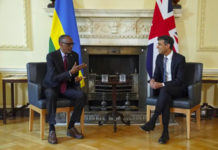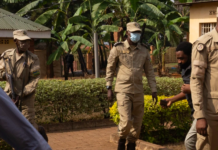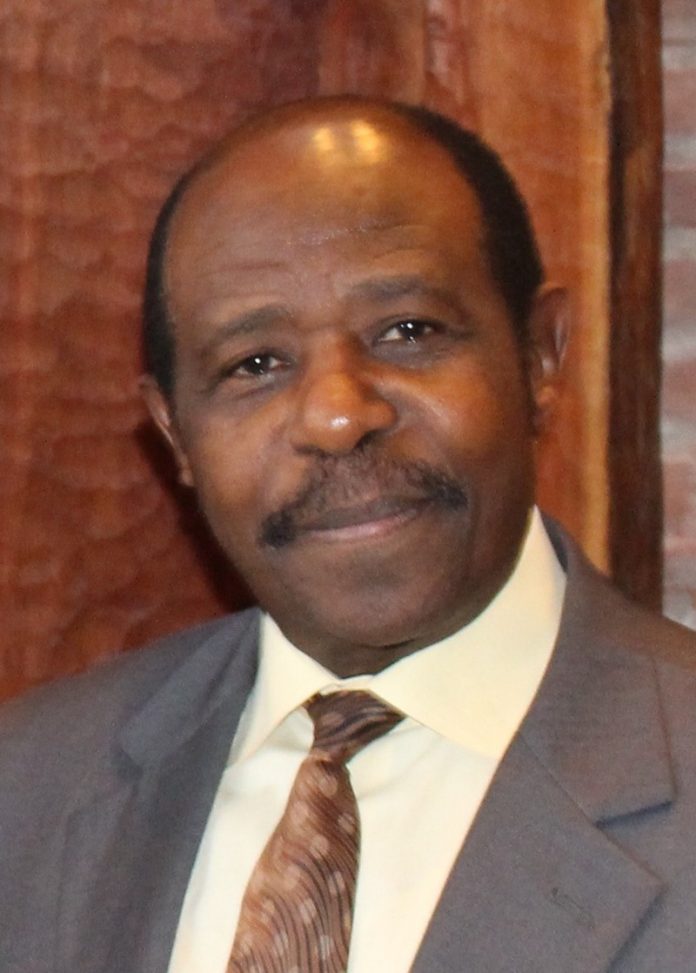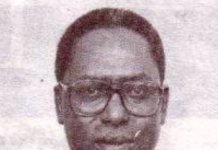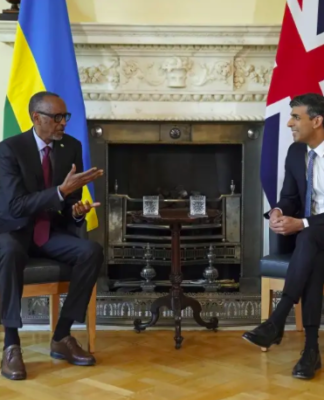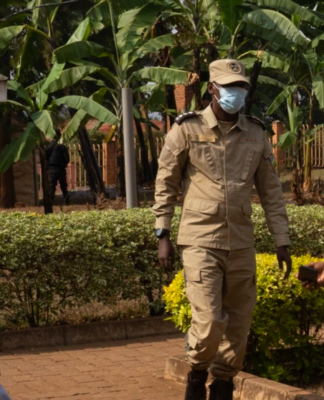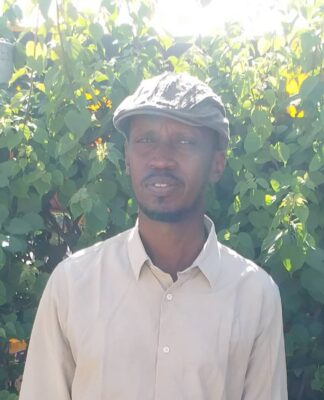Rwanda judicial institutions plotted the abduction of Paul Rusesabagina when he was travelling to Burundi and he found himself in Kigali thanks to the plot hatched by the judicial police in complicity with a certain Burundian bishop named Niyomwungere Constantin who claimed to be his close friend. He was then arrested, detained and tried by the high court chamber dealing with international and cross-border crimes he allegedly committed in Rwanda through the FNL rebellion which would be the armed wing of his political party MRCD. Despite international and regional condemnations of this kidnapping, Rwanda turned out stubborn and the proceedings against him continued and he was judged and sentenced to 25 years in prison with a group of rebels captured on the battlefield who received lesser sentences than the one imposed on him.The recent release of Paul Rusesabagina from a Rwandan prison late on Friday was the result of months of negotiations between Washington and Kigali, with both eager to draw a line under what they described as an “irritant” to their relationships. Who is behind this sudden reversal of position of Rwandan authorities? is there a pressure that would have finally succeeded in the face of a tyrannical regime like that of Kigali and in exchange for what? Throughout the following lines, there is discussed this kind of questions bordering on a series of legal, diplomatic and geostrategic issues.
Facts
Paul Rusesabagina, who inspired the Hollywood film “Hotel Rwanda,” was released from prison in Rwanda after his prison sentence was commuted Friday by the country’s President Paul Kagame.
US senior administration officials told reporters Friday that Rusesabagina, who is a US legal permanent resident, had been transferred to the residence of the Qatari ambassador in Kigali.
“He will be spending a limited period of time hosted by the Qataris,” likely a couple of days, one official said, and then will travel to Doha and on to the United States.
Rusesabagina, an outspoken critic of President Paul Kagame, is best known for saving hundreds of Rwandans during the country’s genocide by sheltering them in the hotel he managed.
He was arrested by Rwandan authorities while he was traveling internationally in 2020 in what his family has claimed was a kidnapping.
Rusesabagina was found guilty on terrorism-related charges in September 2021 and was sentenced to 25 years in prison. The commutation of his sentence comes after he asked Kagame for a pardon in an October 2022 letter.
“Commutation of sentence does not extinguish the underlying conviction,” said government spokeswoman Yolande Makolo on Friday.
Rusesabagina, who is a dual Rwandan and Belgian citizen, was slated to be released along with 19 other people that had been convicted alongside him, Makolo told CNN.
Analysis
A pressure that wins as soon as all Rwandan interests are threatened and the lie being more and more unmasked.
Kigali, the indestructible which finally reconsidered its position
Last year, Mr. Rusesabagina Paul and 20 other people were found guilty of terrorism charges. President Kagame said that “somebody in America” wanted the case to be “nullified” because “this person is a celebrity.”
“If we let him free, how about these other 20 who pointed him as even being their leader?” President Kagame asked.
“We have made it clear, there isn’t anybody going to come from anywhere to bully us into something to do with our lives you can maybe make an invasion and overrun the country,” he added.
Mr. Rusesabagina, was depicted as a hero in a Hollywood movie on the Rwandan genocide. He was sentenced to 25 years in jail after being tricked into boarding a private jet from Dubai to Rwanda’s capital Kigali, thinking he was heading to Bujumbura in Burundi. Mr. Rusesabagina’s family has called the trial a sham, saying he was taken to Rwanda, from exile, by force. The US has stated that Mr. Rusesabagina is being “wrongfully detained” in Rwanda. Momentum picked up over the past year as the Biden administration made a determination in May 2022 that Rusesabagina had been wrongfully detained. Blinken met Kagame during a visit to Rwanda in August, where U.S. officials said the case was discussed extensively. Another opportunity for discussions came during the U.S.-Africa Summit in Washington in December. Yet Kigali continued to take a hard line, with Kagame suggesting on the sidelines of the December summit that only an invasion of Rwanda could force Rusesabagina’s release.
Promising flexibility
The first major public sign of softening came in an interview with Semafor less than two weeks ago, when Kagame said there were discussions about “resolving” the case. Then on Friday came the announcement that Rusesabagina’s sentence had been commuted. He was moved hours later from Nyarugenge Prison to the embassy of Qatar. The 68-year-old former hotelier landed in Doha on Monday from where he will join his family in US.
The victory of pressure
Washington’s historically close ties with Rwanda have been strained by Rusesabagina’s detention and by US allegations, denied by Kigali, that Rwanda has sent troops into the neighboring Democratic Republic of the Congo and supports rebels there. The Rwandan diplomacy was therefore on the brink riddled with serious accusations that risked depriving him of any support he enjoys from the international community and Western powers: mapping report where the Rwandan army is accused to have assassinated quite six millions of DRC citizens and Rwandan Hutu refugees during the different wars it triggered in this country from 1996 to date; violations of human rights on internal and external level where opponents are brutally murdered without any prosecution of the executioners in pure impunity because visibly tele-commanded by the regime- examples on this physical elimination of opponents are numerous; the active involvement of the Rwandan Defence Forces in the conflict opposing DRC to M23 rebellion proven by eyewitnesses and satellite testifying the daily deployment of Rwandan troops across the Rwandan-Congolese borders; overwhelming charges are endless. In our opinion, the foreign powers must have put all this on the table and threatened the regime to cut off all financial and diplomatic support in exchange for the release of the hero of Hotel Rwanda. Indeed, when a country rebels against the orders of the powers of this world, all financial and diplomatic doors are consequently closed to it. this is what was going to happen against this bloodthirsty regime with expansionist ambitions and Blinken’s repeated calls did not bode well even if the strong man of Kigali continued to fool the Rwandan population already frightened by his excesses that there was no pressure.
Conclusion
This world is ruled by the great powers and whoever opposes it finds himself overwhelmed with all the pitfalls that he cannot overcome unless he is suicidal. could we hope that such pressure could free other prisoners of conscience and gradually democratize the country? it is a dream that the powers which support this regime of Kigali could make reality if they want it; only we always wonder the interest which they have in the maintenance of a harmful regime in the region of great lakes from which all the neighboring countries of the region suffer with its repetitive aggressions

